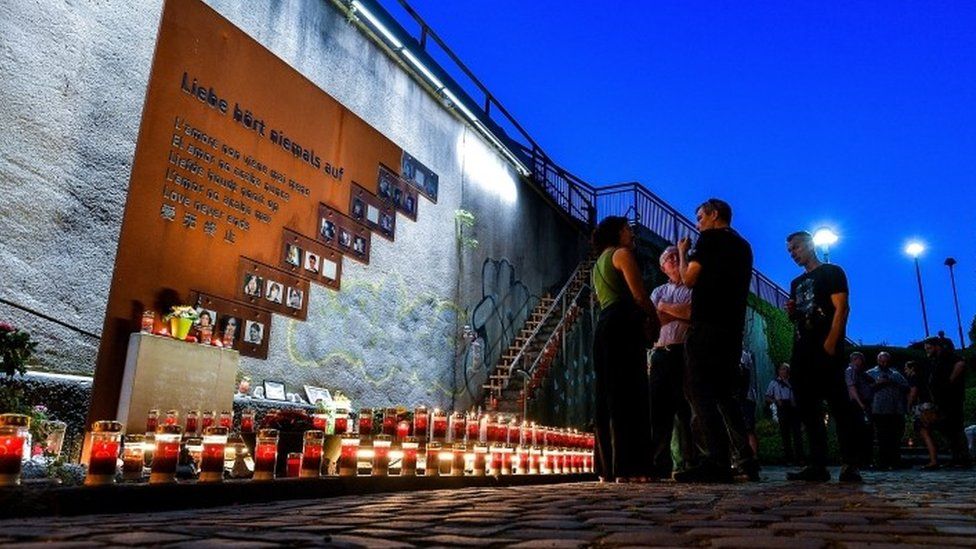Love Parade disaster: German court ends trial over 2010 stampede deaths
- Published

A German court has ended the trial of three techno-music promoters accused of manslaughter at an event where 21 people died in a stampede in 2010.
The victims were crushed to death or suffocated when panic broke out in a congested tunnel at the Love Festival in the western city of Duisburg.
Seven other defendants were acquitted last year.
Judges said coronavirus curbs made convictions for the last three unlikely before the time limit expired in July.
The decision to end the trial had been expected.
Last month the judges had warned that restrictions such as social distancing meant there was "a very low probability of clarifying the allegations in a way that would lead to a conviction".
Besides the 21 deaths, more than 600 people were injured in the stampede.
Four staff of event company Lopavent and six city officials went on trial in 2017, on charges of negligent manslaughter and bodily harm - which they denied.
Prosecutors argued that there had been serious mistakes in planning and authorising the event, and that safety measures had been insufficient. The defence said many factors had contributed to the tragedy.
Police radios did not work properly, and when the crush developed, police and fire crews did not discuss a rescue strategy with the promoters.
Charges against seven of the accused were dropped in February 2019 with prosecutors arguing that, with so many defendants, the individual levels of guilt were difficult to assess.
All verdicts had to be reached by July 2020 to fall within the 10-year period of the statute of limitations.
The 2010 Love Parade was attended by about a million people. Following the deaths, the organisers decided not to hold another one.
The event started as an impromptu party in Berlin in 1989, before becoming a regular pilgrimage for millions of techno fans.
- Published8 December 2017
- Published24 April 2017
- Published12 February 2014
- Published25 July 2010